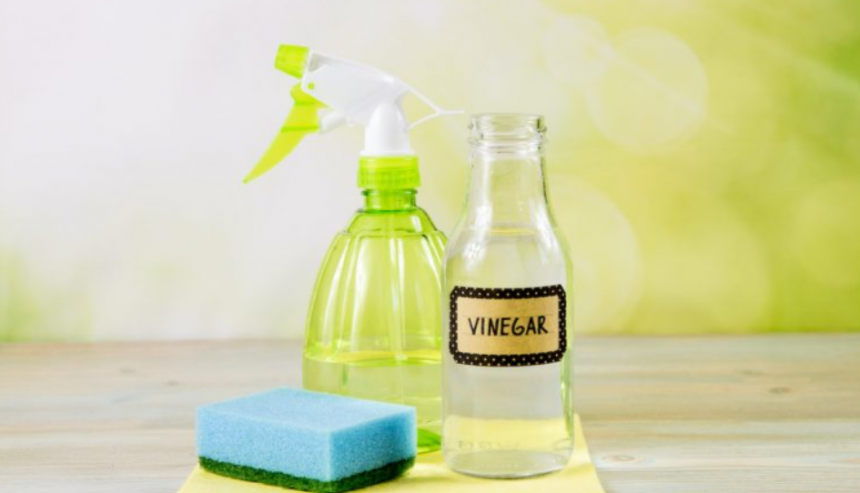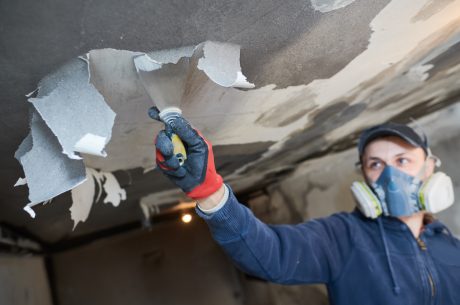What Not to Clean with Vinegar
Vinegar, the all-purpose wonder liquid, has long been touted as a miracle cleaner, capable of banishing dirt, grime, and even bacteria from surfaces throughout our homes. But while it’s true that vinegar can be a powerful tool in your cleaning arsenal, there are some surfaces and items that should never come into contact with this acidic solution.
In this blog post, we’ll explore what not to clean with vinegar, uncovering surprising pitfalls and potential damage that could occur when vinegar meets the wrong materials. Whether you’re a cleaning enthusiast or just looking to keep your home sparkling, understanding these vinegar no-nos is essential for maintaining a pristine environment without inadvertently causing harm. Let’s dive in and discover the delicate balance between vinegar’s cleaning prowess and its limitations.
Disadvantages of vinegar in cleaning
While vinegar is a popular and natural cleaning solution, it’s not without its disadvantages. Here are some drawbacks to consider:
- Not Effective Against All Germs: While vinegar can kill some bacteria and germs, it’s not as effective as commercial disinfectants, especially against certain strains of bacteria like E. coli or Staphylococcus aureus. For thorough disinfection, especially in areas prone to contamination, such as bathrooms and kitchens, you may need to supplement vinegar with stronger disinfectants.
- Acidic Nature: Vinegar is acidic, typically with a pH of around 2. This acidity can cause damage to certain surfaces over time, particularly those made of natural stone like marble or granite. Prolonged use of vinegar on such surfaces can etch or dull the finish, leading to irreversible damage.
- Unpleasant Odor: While some people don’t mind the smell of vinegar, others find it off-putting. The strong, pungent odor can linger in the air long after cleaning, which may be undesirable, especially in confined spaces or areas where guests frequent.
- Staining: Vinegar has the potential to stain certain materials, particularly porous surfaces like unfinished wood or unsealed grout. Using vinegar on these surfaces can cause discoloration or leave behind unsightly stains, detracting from the aesthetic appeal of your home.
- Potential Corrosion: Vinegar’s acidity can also corrode certain metals, such as iron or aluminum. When used to clean metal surfaces or kitchen appliances, vinegar can cause pitting or dulling of the metal finish, compromising its appearance and structural integrity.
- Incompatibility with Some Materials: Vinegar should not be used on certain materials, including waxed surfaces, cast iron cookware, or electronics. Applying vinegar to these items can strip away protective coatings, cause rusting, or damage delicate electronic components.
- Allergy Concerns: Some individuals may be allergic to the acetic acid found in vinegar. Direct contact with vinegar or inhalation of its fumes can trigger allergic reactions in sensitive individuals, ranging from skin irritation to respiratory issues.
What to use instead of white vinegar for cleaning
If you’re looking for alternatives to white vinegar for cleaning, there are several options available that offer similar cleaning power without some of vinegar’s drawbacks. Here are some alternatives:
- Lemon Juice: Like vinegar, lemon juice is acidic and can be used to cut through grease and grime. It also has a pleasant citrus scent that can leave your home smelling fresh. Dilute lemon juice with water to create a natural cleaning solution for surfaces like countertops, cutting boards, and appliances.
- Hydrogen Peroxide: Hydrogen peroxide is a powerful disinfectant that can kill bacteria, viruses, and mold. It’s particularly effective for sanitizing surfaces in the kitchen and bathroom. Use it undiluted or diluted with water to disinfect countertops, sinks, and other hard surfaces.
- Baking Soda: Baking soda is a mild abrasive that can help scrub away dirt and stains without scratching surfaces. It’s also effective at neutralizing odors. Mix baking soda with water to create a paste for cleaning sinks, tubs, and tile grout.
- Essential Oils: Essential oils like tea tree oil, lavender oil, and eucalyptus oil have natural antimicrobial properties and can add a pleasant scent to homemade cleaning solutions. Mix a few drops of essential oil with water or vinegar to create a custom cleaning solution for countertops, floors, and more.
- Castile Soap: Castile soap is a gentle, plant-based soap that can be used for a variety of cleaning tasks. It’s effective at cutting through grease and grime without harsh chemicals. Mix it with water to create a general-purpose cleaner for surfaces throughout your home.
- Rubbing Alcohol: Rubbing alcohol is a disinfectant that can kill bacteria and viruses on surfaces. It’s particularly effective for cleaning electronics and other items that can’t be cleaned with water-based solutions. Use it undiluted or diluted with water to sanitize surfaces like doorknobs, light switches, and phones.
- Vodka: Vodka is another alcohol-based disinfectant that can be used for cleaning and sanitizing surfaces. It’s effective at killing germs and can also help dissolve grease and grime. Mix it with water and a few drops of essential oil for a homemade disinfectant spray.
Things You Should Not to Clean with Vinegar
1. Avoid Mixing Vinegar with Chlorine Bleach:
Combining vinegar with chlorine bleach or products containing chlorine bleach can produce toxic chlorine gas. This chemical reaction is extremely hazardous and should be avoided at all costs. It’s crucial to adhere to this rule to prevent any potential harm.
2. Steer Clear of Vinegar on Natural Stone Surfaces:
Marble, granite, and other natural stone surfaces should not be cleaned with vinegar due to its acidic nature. Using vinegar on these surfaces can lead to pitting and deterioration over time, compromising their appearance and integrity.
3. Be Cautious with Grout:
While sealed grout can tolerate vinegar, unsealed or damaged grout is susceptible to etching and deterioration when exposed to vinegar. Opt for non-acidic cleaners to avoid weakening the grout and prolong its lifespan.
4. Skip Vinegar for Stainless Steel:
When cleaning stainless steel items like knives, cookware, and appliances, it’s best to avoid vinegar. Prolonged exposure to vinegar can cause pitting, compromising the stainless steel’s surface and aesthetics.
5. Protect Waxed or Unfinished Wood:
Using undiluted vinegar on waxed or unfinished wood can result in discoloration and damage. Instead, opt for diluted vinegar or non-acidic cleaners to safely clean and maintain the wood’s appearance.
6. Mindful Cleaning of Cast Iron:
Vinegar can strip away the protective seasoning layer on cast iron cookware, leading to diminished non-stick properties and potential pitting. Exercise caution when cleaning cast iron and avoid prolonged exposure to vinegar.
7. Keep Vinegar Away from Electronics:
Electronics like TVs, mobile phones, and computer monitors should not be cleaned with vinegar or vinegar-based cleaners as they can damage the anti-glare coating and electronic components.
8. Be Aware of Rubber Gaskets and Hoses:
Vinegar exposure can cause rubber gaskets and hoses to deteriorate over time. Check manufacturer instructions before using vinegar to clean household appliances to ensure compatibility with rubber components.
9. Check Iron Care Instructions:
Before using vinegar to descale a clothes iron, consult the user manual to confirm it won’t cause damage to the metal components. Exercise caution and follow manufacturer recommendations.
10. Avoid Vinegar for Pet Messes:
Vinegar is not recommended for cleaning pet messes, especially on soft surfaces like carpets and upholstery. Instead, use enzyme-based cleaners to effectively remove stains and odors without risking reinforcement of scent marking by pets.
In summary, while vinegar boasts versatility and popularity as a cleaning solution, it’s imperative to acknowledge its limitations. Understanding what not to clean with vinegar is essential to prevent unintended damage.
From the delicate allure of natural stone to the intricate workings of electronics, vinegar’s acidic nature can pose risks rather than benefits. By familiarizing yourself with items unsuitable for vinegar cleaning, you can protect your possessions, uphold their integrity, and uphold the pristine condition of your living space.
Should you require assistance with tackling hazardous substances such as mold on hardwood, walls, or other surfaces, PuroClean stands ready to assist. Our adept and certified technicians can assess the extent of mold growth in your residence and swiftly eradicate it using specialized equipment.



